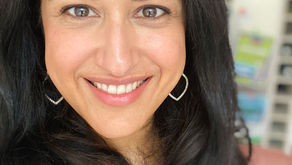Get Lucky
- MR

- Jul 10, 2020
- 5 min read
Hello! Do you ever wonder if luck plays a role in your life? The concept of luck is widely used in many cultures. The thinking being if we take the necessary steps and have the right charms, we will maximise our chances of being lucky. From symbols and numbers to placement of plants and furniture, Asians, particularly Chinese, believe that in order to enhance our luck, we need to clear the path to attract that luck to us. Living in Hong Kong, I saw it everywhere--statues of gods at the front of stores with incense burning--an offering of prayers and good wishes, water features in a specific corner of a room, decorative symbols for "double happiness" placed around homes, to the exorbitant prices for a number plate or address that has the number 8 (two 8s is doubly "lucky"). Even the name of a business would be carefully chosen in order elicit good fortune. You'll find signs around the city pointing to names on buildings like Wealthy Tower or New Lucky House.
In fact, it has been said that Hong Kong itself is designed with luck in mind. One of the most recognised buildings is the HSBC building in HK's Central district. Dr Manuela Madeddu, architect and senior lecturer at London's South Bank University says, “The HSBC headquarters building in Hong Kong is a classic example of feng shui at work. The building has a garden in front of it, an empty space where the energy is collected, and then the water beyond that, which is wealth, according to feng shui." Feng Shui is all about manoeuvring ourselves and our surroundings to allow the flow of good, lucky energy into our homes and offices.
Raymond Lo, the Vice President of the International Feng Shui Association says, “In ancient China they discovered that there are different kinds of energies existing in our environment. Therefore, feng shui tells us where the good and bad energy is and how to maximise the benefit of the prosperous energy and reduce the negative energy...With its mountains and harbour, where all the energy collects, Hong Kong is the only place in the world that exactly matches with the best feng shui principle of wind and water.” And it works, Hong Kong's skyline is one of the most iconic and famous in the world. Not bad for a tiny island spanning 1,106km².
Parents too, when naming their children take careful consideration when contemplating the kind of future they want for their child. Luisa Tam, columnist at The South China Morning Post writes, "The theory is based on the yin-yang balance with the five elements, which play a significant part in allowing a child to grow and live in harmony with their surroundings and go on to live a healthy, happy and successful life." The thinking behind it is, if you are named it, if you absorb it, if you surround yourself with it, if you say it, you will believe it and luck will come.
One could say that is the basis for what we now know, and what has been popularised as, "the law of attraction." The Law of Attraction is "the ability to attract into our lives whatever we are focusing on. It is believed that regardless of age, nationality or religious belief, we are all susceptible to the laws which govern the Universe, including the Law of Attraction. It is the Law of Attraction which uses the power of the mind to translate whatever is in our thoughts and materialize them into reality. In basic terms, all thoughts turn into things eventually." How we think, what words we use to describe our reality are crucial to bringing "luck" into our lives. So that brings into question what is luck really? The writer Maria Konnikova turned to the game of Poker to help her figure that out. She describes it in The Guardian as, "Our thinking about luck has real consequences in terms of our emotional wellbeing, our decisions, and the way we implicitly view the world and our role in it. There is no such thing as objective reality. Every time we experience something, we interpret it for ourselves. How we phrase sentences can determine whether we have an internal or external locus of control, whether we are masters of our fates or peons of forces beyond us. Do we see ourselves as victims or victors? A victim: the cards went against me. Things are being done to me, things are happening around me, and I am neither to blame nor in control. A victor: I made the correct decision. Sure, the outcome didn’t go my way, but I thought correctly under pressure. And that’s the skill I can control." It is fascinating insight into how we view the concept of luck and the element of control we actually have. There are many people who believe we make our own luck; that the choices and decisions we make are done so with the best information we have at the time and the vision we have in mind. For me, I look at my life as a journey. Was getting my first job in television in Toronto luck? Maybe. A fellow student who I happened to be sitting next to in class happened to be working at the television station and knew of an opening at the reception desk where there was a job answering phones. She introduced me to the woman in charge and I got the job there. Luck may have gotten me in the door but I have to believe it was my hard work and determination that pulled me up the ladder from receptionist into the role of reporter and anchor. That said, having my news director champion me, helping me, educating me, played a big part in what became a successful career. I don't know what separated me from others who were just as determined and perhaps more talented than me but maybe therein lies the unknown that Konnikova talks about. I could go way back and see how luck played out for me in life from being born in Hong Kong and my parents deciding we needed to move to Canada (their decision) because of the political situation there (not their decision), then finding the right house in Toronto in the right neighbourhood with the right school and with the right guidance counsellor who suggested journalism as a potential career. Did luck also play a part in me meeting the man who would become my husband? We had known each other for years, even working together but it would be one chance moment where we both happened to be in the right place emotionally to recognise in each other what we had both been searching. That unknown, that space between the before and after, that is what I'm interested in. And while we think we don't have control within that entity, we do have control over how we think about it and what words we choose to describe our potential for happiness and success. Look, life doesn't always go according plan, we know that. Unfortunate things happen. Things that are out of our control and for what we can't ever be prepared. But perhaps it's about recognising that it isn't about us having "bad luck" rather it's a recognition that life is unpredictable. Sometimes we are dealt cards that don't go our way. Full stop. If we accept that sometimes there are the ebbs of life and know those ebbs don't define our entire existence, that's when we are placing ourselves in a flow that's more likely to help us through the dips. It's why many of us read our horoscopes in the hopes of being prepared for that unknown. The Chinese always say surround yourself with all the symbols, numbers, words, and names to put you in the best possible place to give you the best possible chance of steering luck your way. Those things are for that unknown part of life. The rest, we have control over. The rest is where we put the work in to living our best life. It isn't about just sitting back and relying on our lucky charms but with them, there is an expectation that luck will come your way. It is in that expectation, that mindset, the language we use to describe ourselves and our situation, along with doing the work we need to do, well, that's when things can start to work in our favour. Monita xo









Comments